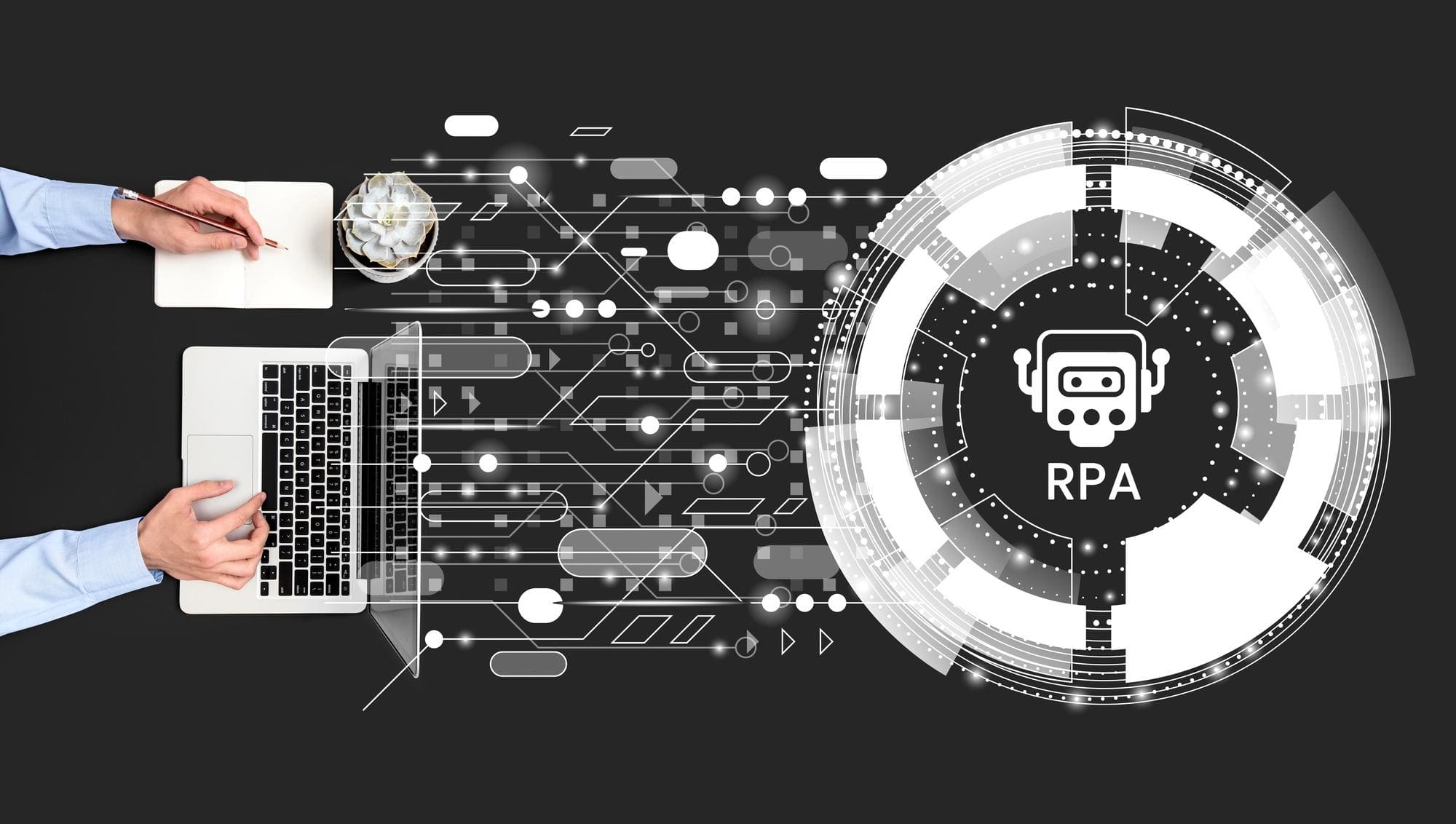Have you ever wondered why people are getting hooked on ai data analysis tools? What is the reason for the growing popularity of AI-generated tools?
In this article, we are about to dive into the world of AI tools and learn about the 13 best AI tools for analysing data.
There are multiple AI tools to visualise, analyse and keep track of your data allowing you to get the insights you need to achieve your goals.
But from so many tools to choose from, how do you select the most apt tool for your needs? To answer that question you must understand what AI can do for you and your data exactly.
So let’s take a deep dive in.
How is AI used in Analytics?
Some of the methods for the usage of AI in analytics are:
Finding Insights: with the help of AI tools, you can examine large amounts of data and can acquire the insights needed for your needs.
Ability to predict outcomes: with predictive AI, you can develop forecasts and analyse potential circumstances to determine a greater chance of success.
Use of AI powered algorithms: the use of algorithms powered by AI, can process large datasets in a fraction of the time it would usually take for a human data analyst.
What are the reasons for you to use AI for Analysing Data ?
With the help of AI tools you can analyse your data with more uniformity. It helps you to predict where certain situations will lead to which may result in a much greater success rate. AI will give you unbiased and large volumes of data that can be further examined.
This will definitely help and you would be able to skip the process of creating and developing algorithms and can directly examine your data.
1. Rapidminer
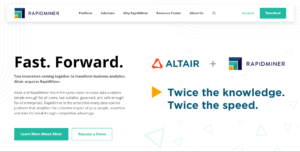
Rapidminer is a comprehensive data science platform as it comes with integration and machine learning capabilities to help load, and analyse data.
FEATURES INCLUDE:
- With the help of Rapidminer, you can examine all types of data including texts, images and audio tracks.
- It provides machine learning capability for designing, creating predictive models.
2. Tableau
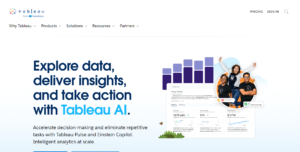
Tableau data analytics tool supports data analytics and visualisation that can be created into reports and can be easily shared within a browser or embedded in an application.
FEATURES INCLUDE:
- It can be used to create interactive visualisation.
- It can handle large amounts of data.
- It supports complex computations and dashboarding.
3. Polymer
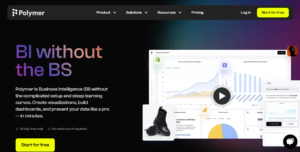
Polymer is Business Intelligence without the complicated setup and steep learning curves. One of the main reasons for it being a great AI tool for data analysis is that it doesn’t require any coding.
FEATURES INCLUDE:
- It is a robust AI tool that can transform data into a database.
- It analyses data and improves your understanding and it makes spreadsheets searchable and more interactive.
4. Akkio
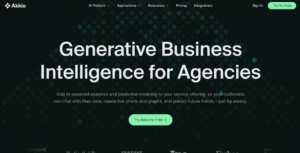
Akkio is extremely useful for predictive analysis, sales, and marketing also it doesn’t require any prior coding experience.
FEATURES INCLUDE:
- It is no code machine learning platform.
- It is perfect for beginners looking to get started with data.
- It offers accuracy ratings for the models and pulls out false positives.
5. Monkey Learn
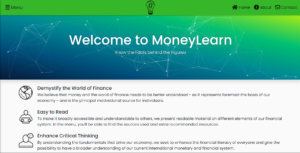
Money Learn can be used to set up text classifiers and text extractors, which help automatically to sort out data according to topic or intent. By using money learn you can save hours of manual data processing.
FEATURES INCLUDE:
- It classifies text in labels in a simple way, which makes it easy to organise and visualise feedback.
- it doesn’t require any coding.
6. Microsoft Power BI
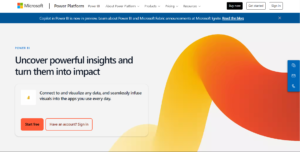
Microsoft Power BI enables you to build machine learning models and utilise other AI powered features to analyse data.It also supports multiple integrations, such as native Excel integration and an integration with Azure machine learning.
FEATURES INCLUDE:
- It integrates seamlessly with existing applications.
- It can create personalised dashboards and helps to publish secure reports.
7. Knime
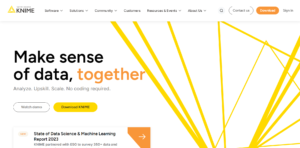
Knime is an open source data analytic platform which provides you with visual programming and integration of various data sources.
FEATURES INCLUDE:
- It offers a wide range of built in tools for data processing including machine learning and visualisation.
- It has a user-friendly interface that might be suitable for you.
8. PyTorch

PyTorch is another open source machine learning library used by many in data analytics and especially research.
FEATURES INCLUDE:
- This is a preferred choice for data analysts and researchers as.
- It offers a dynamic computational graph and extensive tools for creating learning models.
9. Splunk
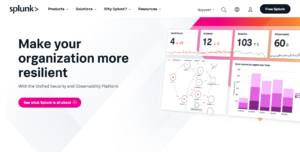
Splunk is a robust network to help you succeed and is a platform that offers real time data analysing and data monitoring for your needs.
FEATURES INCLUDE:
- It collects indexes and analyses machine generated data from different sources which might be very helpful for you.
- It makes it easy with its intelligence and security for data analysis.
10. Sisense
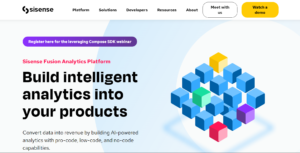
Sisense allows its users to combine data and uncover insights in a single interface without any scripting, coding, and any IT assistance.
FEATURES INCLUDE:
- It features expansive analytical capabilities and a front end for dashboarding and visualisation.
- It makes it easy for organisations to reveal business insights from complex data to any size.
11. Tellius
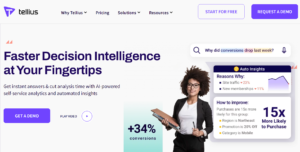
Tellius offers you to hasten time to insights through augmentation and automation.This company also launched live insights recently, which provides you with AI guided insights from cloud data warehouse without moving any data.
FEATURES INCLUDE:
- This platform combines AI and machine learning with search interface
- It supports Search and Natural Language analytics to make data accessible to everyone.
12. Tibco
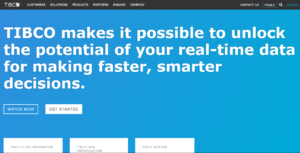
Tibco BI and analytics portfolio comes with two main iterations: Tibco spotfire is the company’s more modern platform. Tibco jaspersoft supports traditional reporting which is embedded in BI functionality.
FEATURES INCLUDE:
- Its products have the capability to be expansive and it ranges from data integration and API management to visual analytics, reporting and data science.
- It’s connected Intelligence platform seamlessly connects any application or data source
13. Microsoft Azure
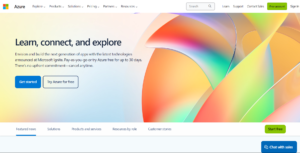
Microsoft Azure is a cloud based offering scalability and flexibility for data analysis tasks of varying sizes and complexities.
FEATURES INCLUDE:
- Integration with other Azure services let’s customers construct complete AI solutions that may cater to unique commercial enterprise desires.
Summarising 13 Best AI Tools for Data Analysis:
- Rapidminer.
- Tableau.
- Polymer.
- Akkio.
- Money Learn.
- Microsoft Power BI.
- Knime.
- PyTorch.
- Splunk.
- Sisense.
- Tellius.
- Tibco.
- Microsoft Azure.
Conclusion
AI-generated tools are taking over the world in various sectors. So, to improve your knowledge one must comply and adjust to the new ways of AI or you will fall back in this competitive world and keep in mind that AI tools are for helping us to improve our lives in general.
With technology becoming very inexpensive, there’s no time like the present to fully utilise AI technology.
Read more relevant articles –
